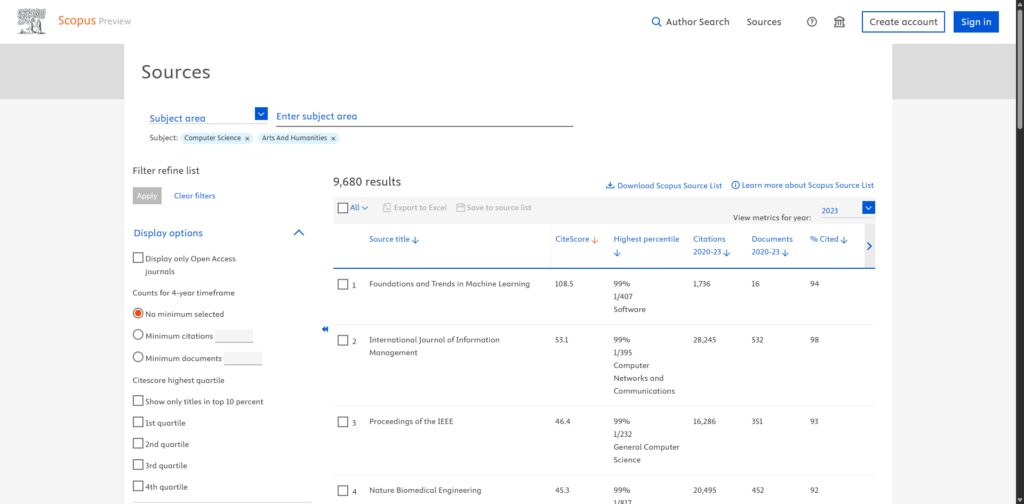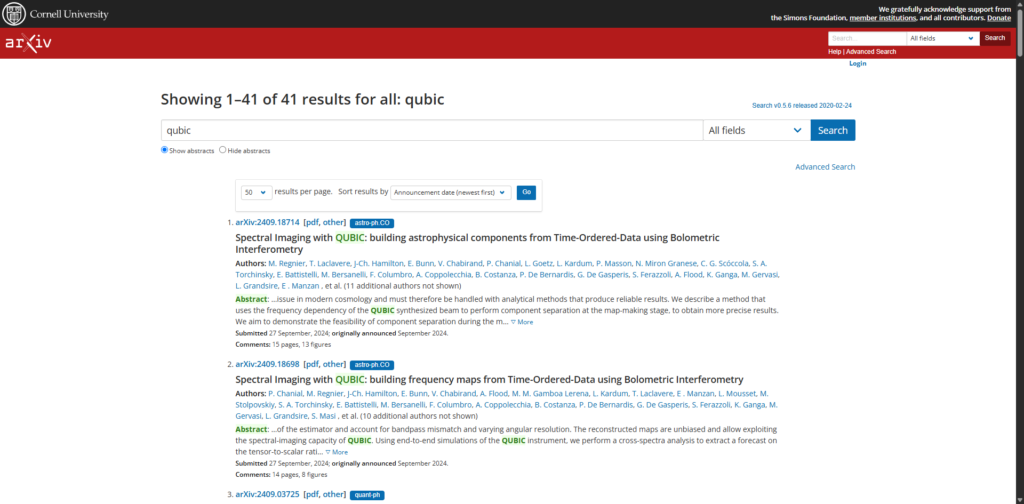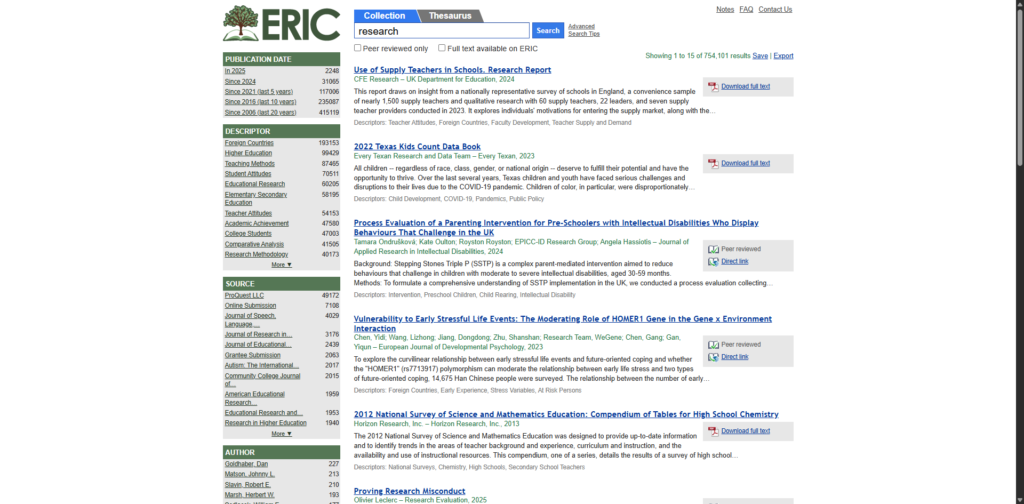These Google Scholar alternatives can do what Google Scholar simply cannot. While it’s long been a go-to for finding scholarly articles, its limited filters, patchy full-text access, and lack of advanced features leave many researchers wanting more. If you need better tools to support deeper, more efficient academic work, you’re not alone.
Whether you’re looking for more powerful search options, improved access to full papers, or smarter ways to manage citations, these alternatives offer a serious upgrade. In this guide, we will introduce 15 standout platforms that can transform the way you research, help you save time, stay organised, and get better results.
Best Google Scholar Alternatives
Dimensions (https://app.dimensions.ai/discover/publication)
Dimensions is a strong Google Scholar alternative because it offers far more than standard publication searches, connecting over 130 million research papers with datasets, patents, clinical trials, and grant information. This makes it especially valuable for researchers who need a broader view of the research landscape or who are exploring funding opportunities and research impact. It supports full-text linking when available, provides citation data, and offers export formats such as BibTeX, RIS, and EndNote. Its rich analytics and integrated research outputs make Dimensions a powerful tool for deeper, data-driven academic exploration.

Discipline: Multidisciplinary
Provider: Digital Science
Coverage: 130+ million publications
Abstracts: ✔
Related articles: ✔
References: ✔
Cited by: ✔
Links to full text: ✔
Export formats: BibTeX, RIS, EndNote
Scinapse (https://www.scinapse.io/app)
Scinapse is a helpful Google Scholar alternative because it uses AI to deliver highly relevant search results while giving access to more than 250 million papers across a wide range of disciplines. It provides abstracts, citations, references, related article suggestions, and full-text links when available, along with export formats such as APA, MLA, and BibTeX. Its combination of intelligent search and broad coverage makes it a convenient tool for quickly finding reliable academic literature.

Discipline: Multidisciplinary
Provider: Pluto Network
Coverage: 250+ million papers
Abstracts: ✔
Related articles: ✔
References: ✔
Cited by: ✔
Links to full text: ✔
Export formats: APA, MLA, BibTeX
Europe PMC (https://europepmc.org/)

Discipline: Biomedical and Life Sciences
Provider: EMBL-EBI (UK), in partnership with PMC
Coverage: 41+ million documents
Abstracts: ✔
Related articles: ✔
References: ✔
Cited by: ✔
Links to full text: ✔
Export formats: RIS, BibTeX, EndNote
OpenAIRE (https://explore.openaire.eu/)
OpenAIRE is a useful Google Scholar alternative for researchers who prioritise open access and want to explore publications connected with related outputs such as datasets, software, and project results. As an EU-supported initiative, it indexes over 100 million records with full-text availability where possible, along with references and BibTeX export options. Although it does not include citation features, its strong focus on openness, transparency, and linking research outputs makes it an excellent resource for discovering freely available and interconnected academic work.

Discipline: Multidisciplinary (EU-funded research focus)
Provider: OpenAIRE (EU initiative)
Coverage: 100+ million research outputs
Abstracts: ✔
Related articles: ✖
References: ✔
Cited by: ✖
Links to full text: ✔
Export formats: BibTeX
Scopus (https://www.scopus.com/sources.uri)
Scopus is a powerful Google Scholar alternative because it offers one of the widest and most reliable collections of peer-reviewed research across science, technology, medicine, social sciences, and more. It indexes journals, conference papers, patents, and other scholarly outputs while providing advanced filtering tools and detailed citation tracking. These features make it easy for researchers to analyse research impact, identify influential authors, and follow citation networks. Its strong data quality and robust analytics make Scopus especially valuable for academic evaluation, literature reviews, and in-depth research assessment.

Discipline: Multidisciplinary, Science, Technology, Medicine
Provider: Elsevier
Coverage: 70+ million articles
Abstracts: ✔
Related articles: ✔
References: ✔
Cited by: ✔
Links to full text: ✔ (via subscription or institutional access)
Export formats: RIS, BibTeX, EndNote, CSV
BASE (https://www.base-search.net/)
BASE is a strong Google Scholar alternative for researchers who want extensive open-access content, as it aggregates more than 300 million documents from repositories around the world and is maintained by the Bielefeld University Library. Although it does not offer citation metrics or related article features, it provides full-text access whenever possible and supports BibTeX export. Its massive coverage and focus on freely available academic materials make it especially useful for finding research without paywalls.

Discipline: Multidisciplinary
Provider: Bielefeld University Library
Coverage: 300+ million documents
Abstracts: ✔
Related articles: ✖
References: ✖
Cited by: ✖
Links to full text: ✔
Export formats: BibTeX
PubMed (https://pubmed.ncbi.nlm.nih.gov/)
PubMed is a valuable Google Scholar alternative for anyone working in biomedical and life sciences because it provides access to a vast, authoritative collection of over 36 million citations maintained by the U.S. National Library of Medicine. It offers detailed abstracts, related article suggestions, references, and links to full-text papers when available, along with export options such as MEDLINE, XML, and BibTeX. Its highly curated medical and scientific coverage makes it one of the most reliable sources for health-related research.

Discipline: Medical and Life Sciences
Provider: U.S. National Library of Medicine
Coverage: 36+ million citations
Abstracts: ✔
Related articles: ✔
References: ✔
Cited by: Limited
Links to full text: ✔
Export formats: MEDLINE, XML, BibTeX
IEEE Xplore (https://ieeexplore.ieee.org/Xplore/home.jsp)

Discipline: Engineering, Computer Science, Technology
Provider: IEEE
Coverage: 5+ million documents
Abstracts: ✔
Related articles: ✔
References: ✔
Cited by: ✔
Links to full text: ✔
Export formats: RIS, BibTeX, EndNote
JSTOR (https://www.jstor.org/)
JSTOR is a reliable Google Scholar alternative for researchers in the humanities, arts, and social sciences, offering access to a deep archive of more than 12 million academic sources. It provides abstracts, references, citation data, and export options in formats such as MLA, APA, Chicago, and RIS. Its strong focus on high-quality, peer-reviewed scholarship and historical coverage makes it especially valuable for subjects that rely on older literature and long-term academic archives.

Discipline: Humanities, Social Sciences, Arts
Provider: ITHAKA
Coverage: 12+ million academic resources
Abstracts: ✔
Related articles: ✔
References: ✔
Cited by: ✔
Links to full text: ✔
Export formats: MLA, APA, Chicago, RIS
arXiv (https://arxiv.org/)
arXiv is a strong Google Scholar alternative for researchers in physics, mathematics, computer science, and other fast-moving scientific fields because it provides immediate access to new preprints long before journal publication. Hosted by the Cornell University Library, it contains more than 2 million papers with abstracts, references, and full-text documents freely available. Although its citation data and related article features are limited, it supports BibTeX export and remains one of the best sources for accessing cutting-edge scientific research without paywalls.

Discipline: Physics, Mathematics, Computer Science
Provider: Cornell University Library
Coverage: 2+ million preprints
Abstracts: ✔
Related articles: ✖
References: ✔
Cited by: Limited
Links to full text: ✔
Export formats: BibTeX
ResearchGate (https://www.researchgate.net/)
ResearchGate is a practical Google Scholar alternative because it combines research access with strong networking features, allowing users to connect directly with authors and request full texts that may not be available elsewhere. With over 135 million publication entries, it provides abstracts, citations, related articles, references, and links to full texts when available, along with export options like RIS and BibTeX. Its community-driven approach makes it especially useful for collaboration, discussion, and accessing hard-to-find research.

Discipline: Multidisciplinary
Provider: ResearchGate GmbH
Coverage: 135+ million publication entries
Abstracts: ✔
Related articles: ✔
References: ✔
Cited by: ✔
Links to full text: ✔
Export formats: RIS, BibTeX
CORE (https://core.ac.uk/)
CORE is a useful Google Scholar alternative for anyone looking for open-access research, as it aggregates more than 260 million articles from repositories around the world with a strong focus on full-text availability. Although its citation tools are limited, it supports BibTeX export and provides broad access to global research outputs. Its commitment to free, unrestricted scholarship makes it especially helpful for avoiding paywalls while still accessing extensive academic material.

Discipline: Multidisciplinary
Provider: The Open University / Jisc
Coverage: 260+ million articles
Abstracts: ✔
Related articles: ✖
References: ✖
Cited by: ✖
Links to full text: ✔
Export formats: BibTeX
Semantic Scholar (https://www.semanticscholar.org/)
Semantic Scholar stands out as a powerful Google Scholar alternative thanks to its AI-driven search features, which highlight influential papers, key concepts, and highly relevant results. Its database of around 40 million articles includes abstracts, references, citations, related research suggestions, and full-text links, with export options in APA, MLA, Chicago, and BibTeX. Its machine learning approach helps users quickly find meaningful and impactful research in any field.

Discipline: Multidisciplinary
Provider: Allen Institute for AI
Coverage: Approx. 40 million articles
Abstracts: ✔
Related articles: ✔
References: ✔
Cited by: ✔
Links to full text: ✔
Export formats: APA, MLA, Chicago, BibTeX
ERIC (https://eric.ed.gov/?)
ERIC is an excellent Google scholar alternative for education researchers because it specialises entirely in teaching, learning, and policy-related literature. With over 1.6 million indexed items, ERIC offers abstracts, references, limited citation metrics, and full-text access where available, plus export options like RIS and BibTeX. Its focused coverage and government-backed indexing make it a reliable source for high-quality, education-specific research.

Discipline: Education
Provider: Institute of Education Sciences, U.S. Department of Education
Coverage: 1.6+ million items
Abstracts: ✔
Related articles: ✖
References: ✔
Cited by: Limited
Links to full text: ✔
Export formats: RIS, BibTeX
SSRN (https://www.ssrn.com/index.cfm/en/)
SSRN is a strong Google Scholar alternative for anyone working in social sciences, economics, law, and business because it focuses on early-stage research and working papers that often appear long before journal publication. With more than 1.2 million papers, it provides abstracts, references, limited citation data, and full-text access when available, along with export formats like APA, MLA, Chicago, and RIS. Its emphasis on emerging ideas and preprints makes it ideal for staying ahead of new theoretical developments.

Discipline: Social Sciences, Economics, Law
Provider: Elsevier
Coverage: 1.2 million+ papers
Abstracts: ✔
Related articles: ✖
References: ✔
Cited by: Limited
Links to full text: ✔
Export formats: APA, MLA, Chicago, RIS
Final Thoughts and Actionable Tips
Navigating academic research can feel overwhelming, especially with the amount of information available today. The good news is that with the right strategy and the right tools, you can simplify your workflow, deepen your understanding, and access a wider range of scholarly materials. While Google Scholar is a popular resource, exploring Google Scholar alternatives can give you access to richer insights, specialised databases, and more efficient research practices. Below are some actionable tips to help you elevate your research process.
Use Multiple Platforms
- Access a wider range of research: Relying only on Google Scholar can limit the scope of your results. Consider pairing it with google scholar alternatives such as Dimensions, BASE, or Semantic Scholar.
- Cross-reference sources: Using multiple tools allows you to verify information and ensure greater accuracy. Different platforms index different journals and preprints.
- Use specialised databases:
IEEE Xplore for engineering and technology
PubMed for health and life sciences
SSRN for social sciences and law
Focus on Open-Access Sites
- Avoid paywalls and save money: Platforms like BASE, CORE, and arXiv offer free access to millions of papers. These sites are often considered top google scholar alternatives for researchers on a budget.
- Access global resources: Open-access repositories gather papers from universities, research labs, and independent scholars around the world.
- Stay ahead in your field: Preprint servers like arXiv publish cutting-edge research in fast-moving areas such as AI, physics, and computer science.
Keep Citations Organised
- Use citation management tools: Zotero, Mendeley, and EndNote help you store, sort, and format your references quickly.
- Save time on formatting: These tools generate citations automatically in styles like APA, MLA, and Chicago.
- Collaborate effectively: Mendeley allows you to share collections and annotate papers with your research team.
Stay Updated
- Look out for updates: Many google scholar alternatives frequently improve their search features, analytics, and database coverage.
- Track emerging trends: Tools like Dimensions and Microsoft Academic offer analytics that highlight trending research topics and influential studies.
- Explore new metrics: Many platforms include altmetrics such as social media mentions and policy citations, helping you understand the wider impact of research.
Connect with Experts
- Build your network: Platforms like ResearchGate help you follow researchers, ask questions, join discussions, and request full-text papers.
- Gain insights and feedback: Engaging with experts exposes you to new perspectives and collaboration opportunities.
- Stay informed: Joining academic groups and forums keeps you updated on new developments, conferences, and relevant discussions in your field.
By diversifying the tools you use, especially through exploring powerful Google Scholar alternatives, you can build a more efficient and insightful research workflow. Whether you are a student, academic, or independent researcher, these strategies will help you stay organised, discover deeper insights, and stay ahead in your field.
Conclusion
While Google Scholar is a go-to for many researchers, it’s definitely not your only option. The alternatives we’ve explored offer more advanced features, better access to full-text articles, and improved search filters, all designed to help you find the best sources for your research. Whether you’re after more refined analytics, access to specific journals, or better citation management, these tools can really enhance your research experience.
And if you’re looking to take your research even further, why not explore some of the top free AI tools that can help with your writing? Check out our guide on the 10 Best Free AI Tools for Research Writing in 2025 to discover more ways to improve your workflow and research outcomes!


